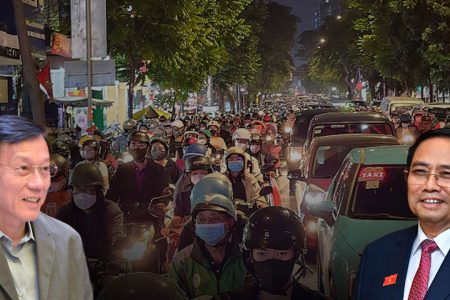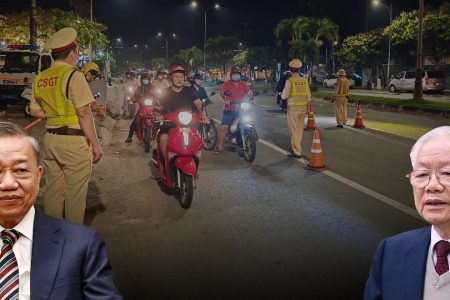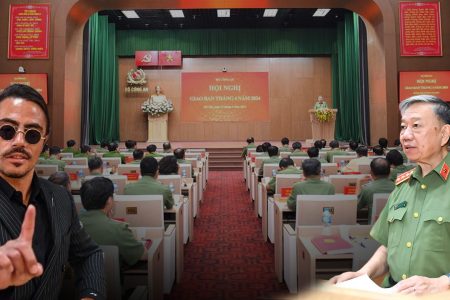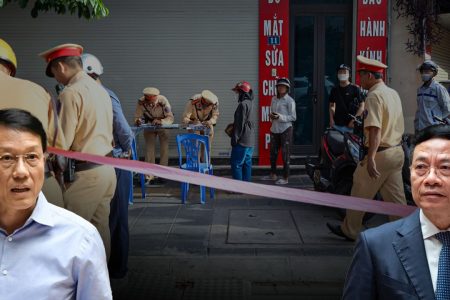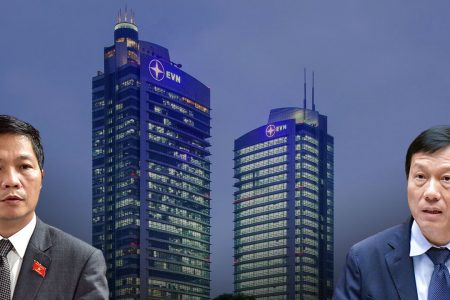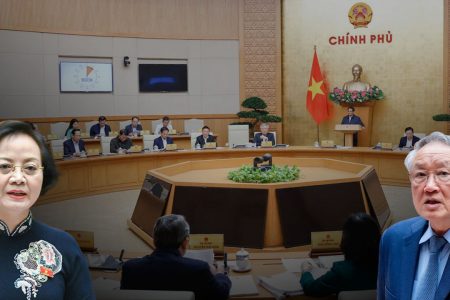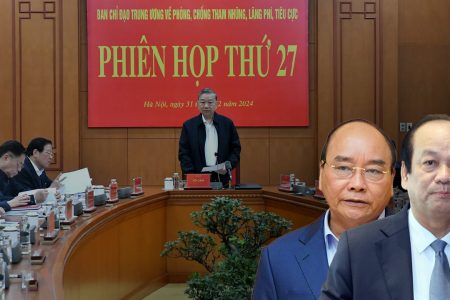October 15, 2024
Lawyer Vu Duc Khanh
Vietnam-China relations since the 1979 Border War have always been filled with tension and instability, especially in the context of sovereignty disputes in the South China Sea. However, China is still an important economic partner of Vietnam, providing a large market and investment capital. Recently, the visit of Chinese Premier Li Qiang continued to affirm China’s support for the “socialist path” that the Communist Party of Vietnam (CPV) is still pursuing. However, this is not a sign of deep ideological sharing but a political and economic strategy of China to maintain its influence in the region, especially in the context of competition with other powers.

Welcoming the 74th anniversary of China-Vietnam diplomatic relations in Hanoi
What does China expect from Vietnam?
- Combining China’s “Belt and Road” initiative with the Vietnam-China “Two Corridors, One Belt” initiative: This is a strategy of China to expand its economic influence through infrastructure connectivity and trade development. For Vietnam, this may bring short-term economic benefits but carries the risk of losing control of important infrastructure projects.
- Maintaining political stability and the influence of the Communist Party of Vietnam: China wants to maintain a stable political regime in Vietnam, especially when the Communist Party of Vietnam is still pursuing a socialist model. This helps China have a friendly neighbor and an ideological ally in the Southeast Asian region.
- Controlling and limiting the influence of other powers in Vietnam: China does not want Vietnam to be too close to powers such as the United States or Japan. Therefore, maintaining political and economic influence through investments and economic cooperation is an effective tool to keep Vietnam within its sphere of influence.
What can Vietnam do to protect its independence, sovereignty and territorial integrity?
Faced with the challenges of dependence on China, Vietnam needs a strategy of multilateralization and diversification of international relations to maintain its independence, sovereignty and territorial integrity. Specifically:
- Building strong economic strength: Vietnam needs to continue to promote economic reform, focusing on high-tech industries, developing processing and manufacturing industries and economic sectors with high added value. A self-reliant economy will help reduce dependence on major partners such as China.
- Promoting multilateral international cooperation: Vietnam needs to continue to promote strategic partnerships with countries such as the United States, Japan, South Korea, Australia, India and the European Union. This relationship should not stop at economic cooperation but should be expanded to the fields of defense and security, in order to create a balance and counterweight to China’s pressure.
- Strengthening national defense capacity: To protect territorial integrity, Vietnam needs to invest in military forces, especially the navy and air force, to strengthen its self-defense capacity against threats at sea. Military modernization will help Vietnam create a deterrent and is an important tool to protect national interests.
- Flexible but steadfast foreign policy: Vietnam needs to continue to pursue a peaceful foreign policy, not taking sides, but based on common values shared by the international community and resolutely protecting national interests. This requires cleverness in negotiations, using diplomacy to gain international support without causing unnecessary confrontation with major powers.

Signs of institutional change and the role of freedom, democracy, and prosperity
Currently, there are signs that the CPV may consider some limited political reforms to adapt to the new situation. One of the important factors driving this change is internal pressure, especially the need to increase transparency and accountability of the government in the context of economic development and international integration.
Why are freedom, democracy, and prosperity the common denominator for sustainable development?
Freedom: Is the core factor to protect human rights, create creativity and dynamism in society. All people need to be guaranteed basic freedoms to maximize their individual potential.
Democracy: Ensures control of power, prevents abuse of power, and creates a political system that reflects the aspirations of the people. Democracy also promotes transparency, helping society develop sustainably.
Prosperity: It is a common goal of every country, but prosperity is not only economic growth but also includes quality of life and comprehensive human development.
Vietnam needs to build a political foundation based on these three values to create social consensus and national unity. This unity will help Vietnam become stronger in dealing with external challenges, especially in relations with China.
Conclusion and foreign policy planning
In the current period, Vietnam needs to continue to maintain a flexible but steadfast foreign policy to protect its sovereignty and territorial integrity. At the same time, building internal strength based on the foundation of freedom, democracy and prosperity will be the decisive factor in helping Vietnam achieve sustainable development and maintain independence from the influence of external forces.
The CPV needs to clearly recognize that institutional change – even if limited – is inevitable in the current context. It is national unity, built on the common denominator of universal values, that will help Vietnam move forward in the 21st century with true independence, freedom and prosperity./.







